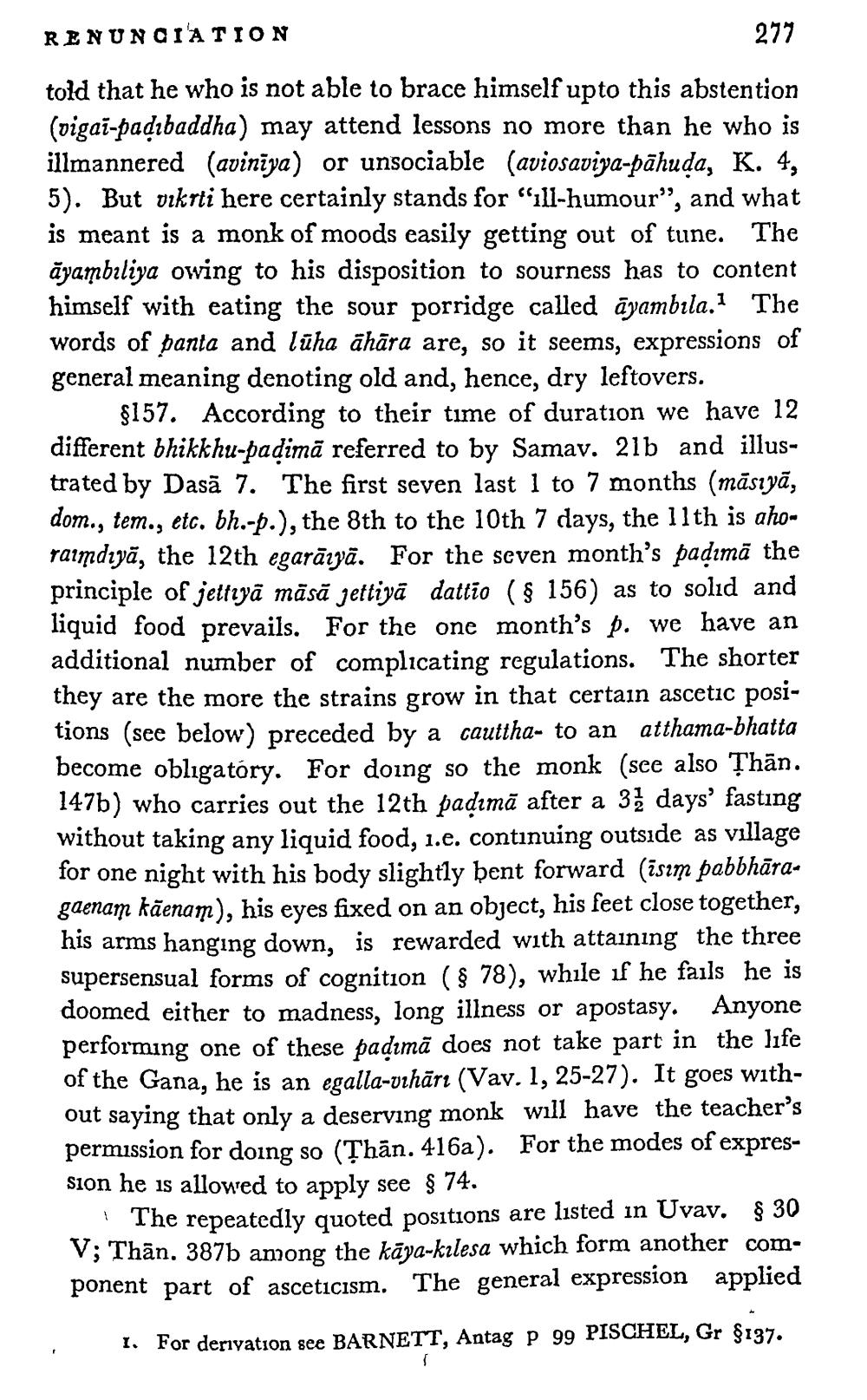________________
RENUNCIATION
277 told that he who is not able to brace himself upto this abstention (vigai-padıbaddha) may attend lessons no more than he who is illmannered (aviniya) or unsociable (aviosaviya-pāhuda, K. 4, 5). But viktti here certainly stands for "ill-humour", and what is meant is a monk of moods easily getting out of tune. The āyambliya owing to his disposition to sourness has to content himself with eating the sour porridge called ayambıla. The words of panta and lūha āhāra are, so it seems, expressions of general meaning denoting old and, hence, dry leftovers.
$157. According to their time of duration we have 12 different bhikkhu-padimā referred to by Samav. 21b and illustrated by Dasā 7. The first seven last 1 to 7 months (māsıyā, dom., tem., etc. bh.-p.), the 8th to the 10th 7 days, the 11th is ahoraimdiyā, the 12th egarāryā. For the seven month's padımā the principle of jettiyā māsā jettiyā dattio ( § 156) as to solid and liquid food prevails. For the one month's p. we have an additional number of complicating regulations. The shorter they are the more the strains grow in that certain ascetic positions (see below) preceded by a cauttha- to an atthama-bhatta become obligatóry. For doing so the monk (see also Thān. 147b) who carries out the 12th padımā after a 31 days' fasting without taking any liquid food, 1.e. continuing outside as village for one night with his body slightly bent forward (īsim pabbhāragaenam kāenam), his eyes fixed on an object, his feet close together, his arms hanging down, is rewarded with attaining the three supersensual forms of cognition (§ 78), while if he fails he is doomed either to madness, long illness or apostasy. Anyone performing one of these padımā does not take part in the life of the Gana, he is an egalla-vihārı (Vav. 1, 25-27). It goes without saying that only a deserving monk will have the teacher's permission for doing so (Thān. 416a). For the modes of expression he is allowed to apply see § 74.
! The repeatedly quoted positions are listed in Uvay. § 30 V; Thān. 387b anong the kāya-kolesa which form another component part of asceticism. The general expression applied
:
1. For derivation see BARNETT, Antag p 99 PISCHEL, Gr $137.




